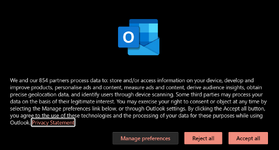Works on my machine. Especially vidya james. Linux gaming has come a long way. Check the proton database.You will be if you need to use the superior proprietary Windows-based software (like editing software, multi-monitor software, media software, and anything with nice, clean GUIs), or if you want to play video games. OSS sucks, even LibreOffice is ass compared to Office. Linux is fine if all you do is code or browse the web, it is in fact in some cases perfectly suitable for casual use. Depends on your needs. You could always just dualboot, though.
Also never had a problem with libreoffice, and I used it back on windows even. Proprietary software is goyed.

